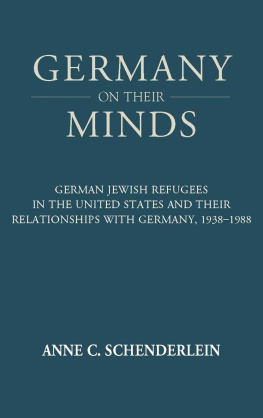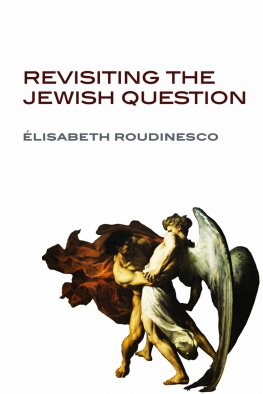Germany and the Jewish Problem
by
Dr. F. K. Wiebe
1939

~ All Your Books Are Belong to Us !!! ~
http://inclibuql666c5c4.onion
Germany and the Jewish Problem
Copyright 1939 Dr. F. K. Wiebe
Published on behalf of the Institute for the Study of the Jewish Problem, Berlin.
Contents
[]
Those who desire further information are recommended to rend the book "Die Juden in Deutschland" (Munich, 7th ed., 1938), which treats the subject with scientic thoroughness and objectivity, and which has supplied us with much valuable material.
Introduction
No man will treat with indifference the principle of race. It is the key of history, and why history is often so confused is that it has been written by men who were ignorant of this principle and all the knowledge it involves.
Language and religion do not make a race there is only one thing which makes a race, and that is blood.
Benjamin Disraeli, Earl of Beaconsfield in Endymion, Vol. II, pp. 18 and 20
Ever since the day when the National Socialists came into power in Germany, thereby placing the solution of the Jewish problem in the forefront of German politics, public opinion the world over has become increasingly interested in that problem. Anti-semitism has been frequently described as a phenomenon exclusively confined to Germany, as a National Socialist invention which must necessarily remain incomprehensible to the rest of the world. But to-day it is evident that the Jewish question is by no means a purely German question, that it causes on the contrary grave anxiety to statesmen in many countries, and that in many lands a pronounced anti-Jewish reaction has already set in. We do not propose to enquire, for the moment, whether these phenomena are a result of the example set by Germany. It is sufficient to register the fact that the Jewish question has, or is about to become everywhere acute, and that there is scarcely a country nowadays which does not find itself compelled to contribute in some way or other to its solution.
Hence everyone who discusses Germany's attitude towards the Jewish question is at the same time dealing with an important problem of contemporary international politics, and, having regard to its far-reaching significance, is in duty bound to carefully investigate that question.
It is a mistake to believe that the Jewish question has only arisen within the last few years, or, indeed, that its origin is to be sought in modern times. The Jewish question is not an invention of National Socialism, nor is it derived from the anti-semitic movements that marked the close of the nineteenth century. If National Socialism can lay claim to any originality in the matter, then only because the National Socialist Party was the first to deduce the logical conclusions from a historical fact. The present German attitude towards the Jewish question is based on the experience made by Europe in the course of two thousand years. And this experience has been a particularly bad one for Germany, especially during the last few decades.
The Jewish question undoubtedly dates back some two thousand years. Strictly speaking it is even oldernamely, as old as the history of the Jews. The Jewish question arises everywhere where the nomadic Jewish race comes into contact with other peoples having a settled abode.
This historical fact is admitted by the Jews themselves. The Jdische Lexikon, which is the standard work of the German Jewspublished long before the advent of National Socialism to powerconfirms the historical continuity of the Jewish question throughout the centuries when it writes (vol. 111, column 421): this Jewish problem is as old as the association of the pronouncedly differentiated and dissimilar Jewish people with other peoples.
It is a unique, and in the last resort inexplicable phenomenon, that on the one hand the Jews have never been able to find a permanent home in which to develop a political and social existence sui generis, while on the other hand they have never proved capable of being absorbed by any of the innumerable countries in which they have sought hospitality.
This peculiar destiny of the Jews is, however, subject to variations. But these variations, in their turn, are only the perpetual ebbing and flowing of an unbroken tide. There were times in which the Jewish problem appeared definitely solved, in which the foreign immigrants appeared to have become completely assimilated and to have lost their distinct ethnical personality. In such halcyon days no Jewish problem seemed to exist. But sooner or later the illusion was dispelled, and after many years of comparative rest and quiet Ahasuerus was compelled to again resume his eternal wanderings.
The first expulsions of Jews on a large scale occurred already in the earliest history of Palestine. 700 years before the Christian era the Assyrian King Sarrukin forced the Jews to leave the country, and his example was followed in 586 B. C. by King Nebuchadnezzar of Babylon. Persecutions in Alexandria and the destruction of Jerusalem by the Romans in A. D. 70 opened a period in which the Jewish question was not less acute than it is to-day. Further milestones in the eternal wanderings of the Jews are the crusades, the expulsion of the Jews from England under Edward I in 1290, and their expulsion from Spain under Ferdinand and Isabella the Catholic in 1492. There is not a single century in which an expulsion of Jews has not taken place. Every nation in Europe has sought to preserve itself against Jewish domination by all the means at its disposal.
It is an incontrovertible historical fact that those peoples with a settled abode who throughout the ages afforded hospitality to nomadic Jewish tribes, invariably regarded the latter as an essentially dissimilar race and not merely as a different religious community. Hence hospitality was only granted to the Jews under special conditions. It is interesting to observe in this connection that in every case where a European State was weak and financially impoverished, the restrictions imposed on the Jews were greatly relaxed and eventually abrogated. The numerical preponderance of the Jews in Eastern Europewhich has become the reservoir of Jewry in modern timesis to a large extent attributable to the political and financial weakness of the former Kingdom of Poland.
The opening of the so-called modern era seemed nevertheless to herald a period of permanent peace and rest for the hitherto restless wandering Jew. It was the era of enlightenment, of liberalism, of belief in the ideals of progress and the rights of man. Conformably with the principles in vogue in this era, the Jews only differed by their religion from other citizens and as such enjoyed equality with the adherents of other religious bodies. They were no longer considered as appertaining to a different race, in other words as strangers. Differentiation on ethnical grounds between the Jews and the native population was on principle abolished by the French Revolution, and this principle was adhered to alike by the legislation and the social custom of ensuing decades.
The nineteenth century was thus dominated by the tenet of the emancipation and assimilation of the Jews. It was considered best not even to mention the Jewish question and to act as if such a question did not exist. In the countries of Western Europe the Jews themselves were animated by an intense desire for assimilation. Conversions and mixed marriages were the principal means employed by the Jews for acquiring, in the words of Heinrich Heine, himself a Jew, an admission ticket to European culture, and thereby acquiring a preponderating inuence in political, cultural, and economic life. It should be added that a number of Jews were inspired by a sincere desire to throw-off their skin and obliterate as far as possible their hereditary tracks.









